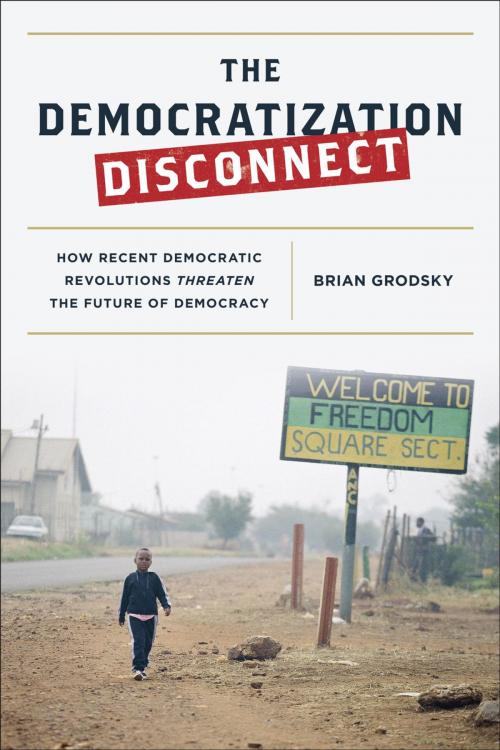The Democratization Disconnect
How Recent Democratic Revolutions Threaten the Future of Democracy
Nonfiction, Social & Cultural Studies, Political Science, Politics, Reference, Government, Democracy, International, International Relations| Author: | Brian Grodsky | ISBN: | 9781442269354 |
| Publisher: | Rowman & Littlefield Publishers | Publication: | August 25, 2016 |
| Imprint: | Rowman & Littlefield Publishers | Language: | English |
| Author: | Brian Grodsky |
| ISBN: | 9781442269354 |
| Publisher: | Rowman & Littlefield Publishers |
| Publication: | August 25, 2016 |
| Imprint: | Rowman & Littlefield Publishers |
| Language: | English |
The most recent wave of democratic revolutions has convinced many in the West of the triumph of political rights. But in this provocative book, Brian Grodsky argues forcefully that nothing could be further from the truth. Today’s revolutionaries—both democratic and non-democratic—are much like those who preceded them throughout history. They’ve all come into power promising enhanced political, but especially economic, rights: higher wages, better living standards, more security. The difference between today’s pro-democracy leaders and yesterday’s non-democratic ones, the author demonstrates, rests on the perceived international legitimacy of the democratic template. Now, when even the most abusive regimes feel the need to label themselves democracies, opponents delegitimize rulers by calling them undemocratic. This sets the stage for what Grodsky calls the “democratization disconnect.” Leaders and followers fight for political change not as an end, but as the most acceptable means to attain economic rights. But by selling democracy as a panacea for the ills of the preceding regime, new elites simultaneously cheapen the notion of democracy and, by creating unrealistic popular expectations, set it up for failure. Putting a fresh new spin on hotly debated current events, this clear-eyed and informed book will be essential reading for all politically engaged readers.
The most recent wave of democratic revolutions has convinced many in the West of the triumph of political rights. But in this provocative book, Brian Grodsky argues forcefully that nothing could be further from the truth. Today’s revolutionaries—both democratic and non-democratic—are much like those who preceded them throughout history. They’ve all come into power promising enhanced political, but especially economic, rights: higher wages, better living standards, more security. The difference between today’s pro-democracy leaders and yesterday’s non-democratic ones, the author demonstrates, rests on the perceived international legitimacy of the democratic template. Now, when even the most abusive regimes feel the need to label themselves democracies, opponents delegitimize rulers by calling them undemocratic. This sets the stage for what Grodsky calls the “democratization disconnect.” Leaders and followers fight for political change not as an end, but as the most acceptable means to attain economic rights. But by selling democracy as a panacea for the ills of the preceding regime, new elites simultaneously cheapen the notion of democracy and, by creating unrealistic popular expectations, set it up for failure. Putting a fresh new spin on hotly debated current events, this clear-eyed and informed book will be essential reading for all politically engaged readers.















